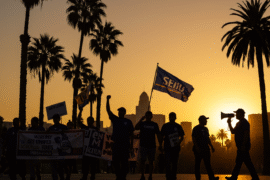This article may contain references to products or services from one or more of our advertisers or partners. We may receive compensation when you click on links to those products or services. Nonetheless, our opinions are our own.

Updated by Albert Fang
- Key Highlights
- Introduction
- Understanding the Basics of a Closed Economy
- Definition and Key Characteristics
- How Does a Closed Economy Differ from an Open Economy?
- The Role of Government in a Closed Economy
- Overview of Government Restrictions
- Impact of These Restrictions on Trade and Investment
- Beginner’s Guide to Navigating Government Restrictions
- Essential Resources and Information You Need
- Conclusion
- Frequently Asked Questions
- Recommended Reads
Key Highlights
A closed economy differs from an open economy. It relies on itself and does not trade much with other countries. In closed economies, governments often impose strict regulations on trade, investment, and money flows with other nations. These regulations aim to protect local businesses, control currency fluctuations, and promote self-reliance. However, they can also limit consumer choices, reduce competition, and lead to inefficient resource use. Understanding how government policies impact business and individuals is crucial in a closed economy.
Introduction
Understanding various economic systems is essential in economics, and a closed economy is one such system. In this system, a country intentionally avoids international markets. Government policies play a vital role in shaping the workings of a closed economy, often setting limits on how goods, services, and money move in and out of the country.
Understanding the Basics of a Closed Economy
A closed economy is one where a country seeks to support itself without engaging in international trade. The country depends on its resources to meet its people’s and businesses’ needs. This might seem appealing initially, but a closed economy has advantages and disadvantages.
Definition and Key Characteristics
A closed economy operates independently and does not trade with the global market. There are no imports or exports, and the movement of money and workers across borders is often restricted. The government typically plays a significant role in controlling what is produced and how resources are used. This could mean the state runs certain industries or closely monitors private ownership. Customary practices in closed economies may influence production methods and the adoption of new technologies.
How Does a Closed Economy Differ from an Open Economy?
The key difference between a closed economy and an open economy is the level of international trade. A closed economy operates in isolation, refraining from trading with other countries. In contrast, an open economy trades by exchanging goods, services, and money across borders.
An open economy facilitates the import of raw materials and the export of finished goods, creating competition, encouraging innovation, and providing consumers with more choices. In contrast, closed economies limit international trade to protect local businesses from foreign competition, often raising prices and restricting access to new technologies.
The Role of Government in a Closed Economy
In a closed economy, the government is essential in managing key industries and setting production goals. Without international trade or investment, the government regulates the flow of goods, services, and money within the country. It also plays a role in setting prices, determining salaries, and making decisions about resource allocation.
Overview of Government Restrictions
Government rules in a closed economy are designed to control or prevent trade with other countries. These rules include tariffs, quotas, and bans, which limit the movement of goods and services in and out of the country. The primary goal is to protect domestic industries from competition by making foreign goods more expensive or harder to access.
While these restrictions can help some local businesses, they may also create monopolies that reduce consumer choices, slow innovation, and lead to inefficiencies in the market.
Impact of These Restrictions on Trade and Investment
Government restrictions on a trade act as barriers, significantly limiting the flow of imports and exports. For example, import quotas limit the quantity of specific items brought into the country, leading to fewer consumer choices and higher prices.
In a closed economy, these restrictions can also discourage foreign direct investment. When access to international markets is limited and regulations are strict, local businesses face challenges in attracting the necessary capital for expansion or growth.
Navigating government rules is essential for anyone in a closed economy, whether you own a business or are learning about the economy. Understanding the regulations is crucial for making informed decisions. This guide breaks down complex ideas into simple steps, helping you manage this unique economic environment.
In considering government restrictions and their influence on money flows in a closed economy, it is vital to explore how regulations also impact citizens living abroad. One important aspect of cross-border financial regulation is understanding how to file FBAR securely and accurately.
Essential Resources and Information You Need
To understand government rules in a closed economy, it’s important to have access to reliable resources. Consulting legal and economic experts can provide valuable insights. In addition to expert help, other resources include:
- Government Websites offer clear and official information on trade policies and regulations.
- Economic Research Institutes: These provide research reports and analyses on closed economies.
- Academic Journals often feature studies on economic models, including closed economies.
Using these resources can help you make informed choices and minimize the risks associated with government rules.
Step 1: Identifying the Main Types of Government Restrictions
To deal with government rules effectively, you first need to understand the main types of trade restrictions in a closed economy. These restrictions come in several forms, each with its own economic goal.
- Quotas: These limits how much of a certain product can be imported or exported over a set period. The government can manipulate market prices and protect local businesses from foreign competition by controlling the quantity of goods traded.
- Embargoes: An embargo is a complete halt to trade with a specific country, often for political reasons. This measure cuts off economic ties and reduces the availability of goods and services.
Step 2: Understanding the Rationale Behind These Restrictions
It’s important to know the different restrictions and understand the reasoning behind them. Government policies help achieve several objectives, such as:
- Protecting Domestic Industries: Governments can shelter local businesses from foreign competition by imposing tariffs or quotas.
- Promoting Self-Sufficiency: Restrictions may encourage the development of domestic industries by reducing reliance on imported goods.
- Safeguarding National Security: Certain restrictions, like embargoes, are used to prevent the flow of sensitive technologies or goods that could threaten national security.
Conclusion
Understanding government regulations in a closed economy is crucial for businesses and individuals. These rules can significantly affect trade and investment decisions. People can adapt their strategies to overcome challenges and seize new opportunities by grasping the reasoning behind these policies. Keeping an eye on key resources and staying informed about changing policies will help you make smarter decisions. For more personalized advice, consult experts or refer to FAQs for additional guidance.
Frequently Asked Questions
How Do Government Restrictions Affect Domestic Businesses?
Trade restrictions can initially protect local businesses from foreign competition, but they can also stifle innovation and reduce consumer choices, leading to higher prices.
Can Government Restrictions Change Over Time, and Why?
Yes, government policies in a closed economy can change due to shifts in leadership, economic crises, or changes in macroeconomic conditions, such as GDP.
What Are the Most Common Types of Government Restrictions in a Closed Economy?
Common trade restrictions include tariffs, import quotas, and embargoes.
- Tariffs are taxes on imported goods.
- Import quotas limit the quantity of specific goods that can be imported.
- Embargoes stop all trade with certain countries.

Reviewed and edited by Albert Fang.
See a typo or want to suggest an edit/revision to the content? Use the contact us form to provide feedback.
At FangWallet, we value editorial integrity and open collaboration in curating quality content for readers to enjoy. Much appreciated for the assist.
Did you like our article and find it insightful? We encourage sharing the article link with family and friends to benefit as well - better yet, sharing on social media. Thank you for the support! 🍉
Article Title: The Role of Government Restrictions in a Closed Economy
https://fangwallet.com/2024/12/17/the-role-of-government-restrictions-in-a-closed-economy/The FangWallet Promise
FangWallet is an editorially independent resource - founded on breaking down challenging financial concepts for anyone to understand since 2014. While we adhere to editorial integrity, note that this post may contain references to products from our partners.
The FangWallet promise is always to have your best interest in mind and be transparent and honest about the financial picture.
Become an Insider

Subscribe to get a free daily budget planner printable to help get your money on track!
Make passive money the right way. No spam.
Editorial Disclaimer: The editorial content on this page is not provided by any of the companies mentioned. The opinions expressed here are the author's alone.
The content of this website is for informational purposes only and does not represent investment advice, or an offer or solicitation to buy or sell any security, investment, or product. Investors are encouraged to do their own due diligence, and, if necessary, consult professional advising before making any investment decisions. Investing involves a high degree of risk, and financial losses may occur including the potential loss of principal.
Source Citation References:
+ Inspo












































